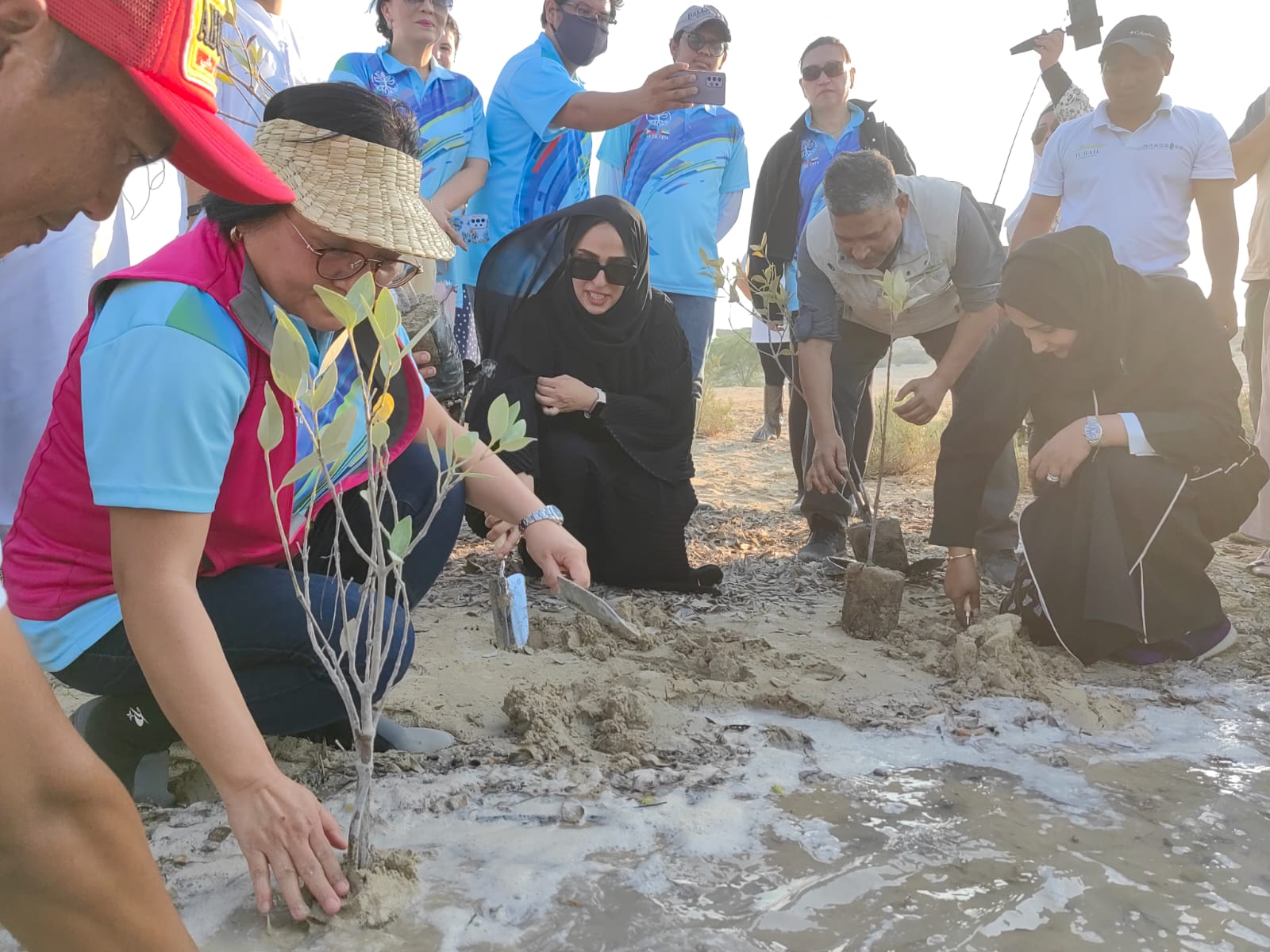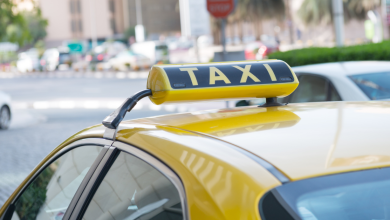The relations between the UAE and the Philippines take another significant milestone with the planting of 48 Mangrove trees, signifying the Philippines’ support for the UAE’s climate goals and its program to plant 100 million mangrove seedlings across the entire country by the year 2030.
Philippine Ambassador to the UAE, H.E. Hjayceelyn Quintana and Environment Agency – Abu Dhabi Secretary General, H.E. Dr. Shaikha Al Dhaheri, joined hands in giving life to a new batch of Mangrove trees at the Jubail Island, which is considered as Abu Dhabi’s sanctuary for mangrove habitats that’s among the UAE’s protected marine ecosystem.
“The 48 mangrove trees we are planting today symbolize the 48 years of strong diplomatic ties between the Philippines and the UAE. Our bilateral relationship with the UAE has greatly evolved in the last 4 years, going beyond the traditional areas of cooperation and now linking arms and developing collaboration on issues that affect humankind,” said Amb. Quintana.
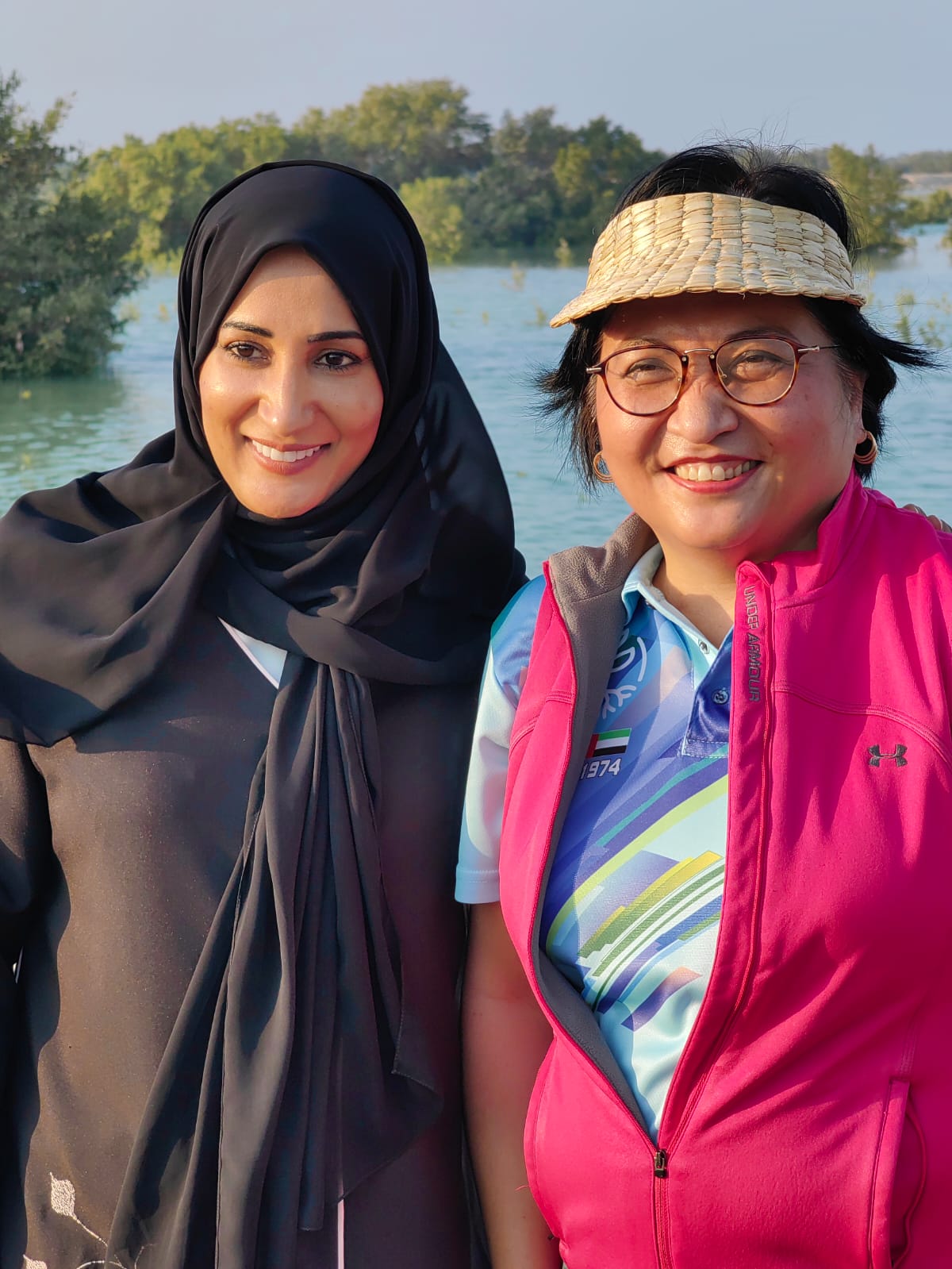
Among the participants during the symbolic mangrove tree planting include officials from the Philippine Consulate General in Dubai led by Hon. Renato Dueñas Jr. , Consul General Marford Angeles, Consul Maria Cynthia Pelayo, Vice Consul Kevin Mark Gomez, Philippine Overseas Labor Office Assistant Labor Attache Jesus Vicente Magsaysay, as well as the Islamic Affairs & Charitable Activities Department in Dubai, led by Ruwayyah Khalifa Alketbi.
The 48 Filipino community leaders who participated in the Mangrove Tree Planting include the Filipino Social Club, the Order of the Knights of Rizal – Emarat Abu Dhabi Chapter, Philippines Partnership Circle, and the United Global Filipinos of the 21st century.
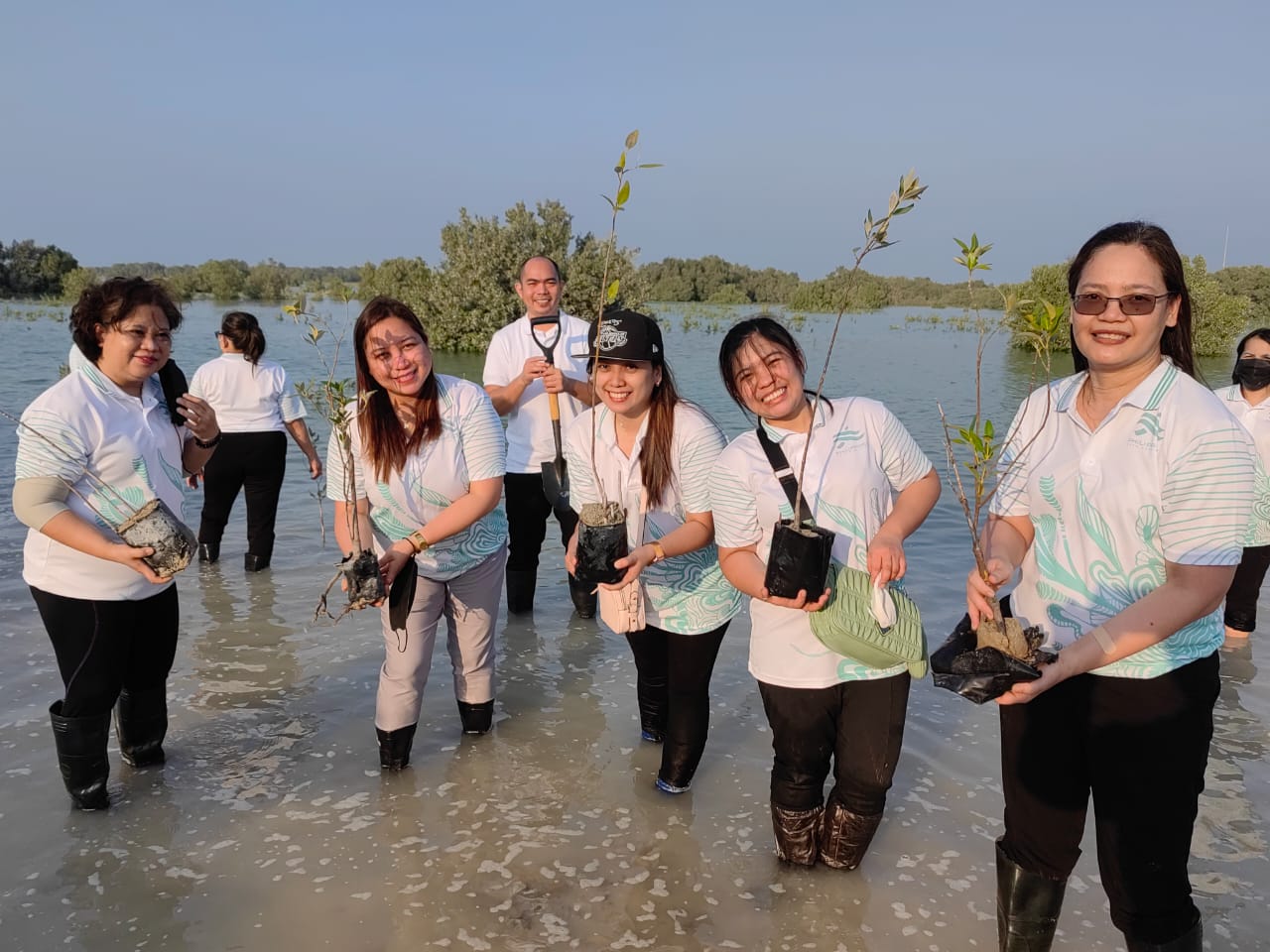
The UAE’s Ministry of Climate Change and Environment (MOCCAE) recently increased its intention to increase mangrove cover by increasing the mangrove-planting objective in its second NDC under the Paris Agreement from 30 million to 100 million by 2030. MOCCAE’s announcement during the 26th UN Climate Change Conference (COP26) in Glasgow last November 2021 strengthens the country’s status as a global leader in nature-based climate change solutions.
Mangroves likewise provide a slew of natural benefits including acting as a protective habitat for both aquatic and terrestrial flora and fauna; helping protect the UAE from violent storms; providing a safe space for Abu Dhabi’s fish stocks to flourish, and acting as an effective carbon sink.
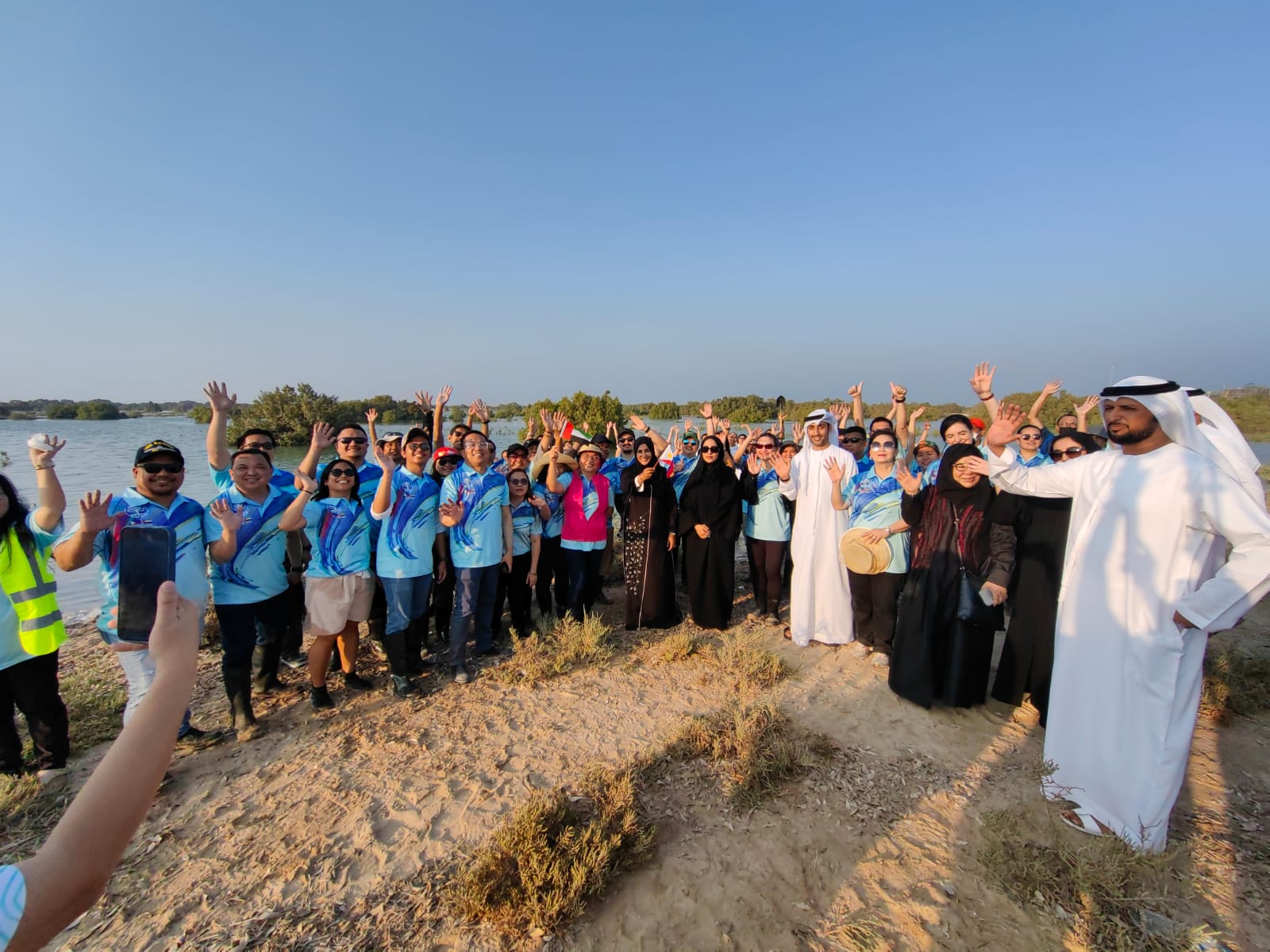
Currently, the UAE has 60 million mangroves, which create forests spanning 183 square kilometers and absorb 43,000 tons of CO2 annually.
When the UAE plants 100 million mangroves by 2023, the country’s mangrove forests will encompass 483 square kilometers, sequestering over 115,000 tons of CO2 each year.
